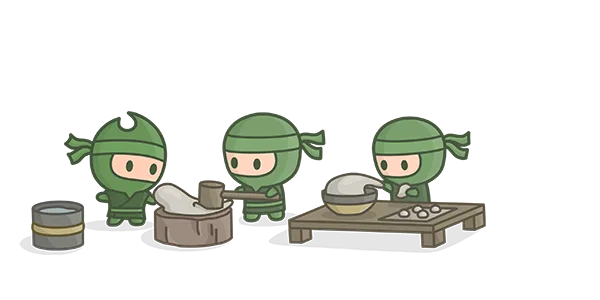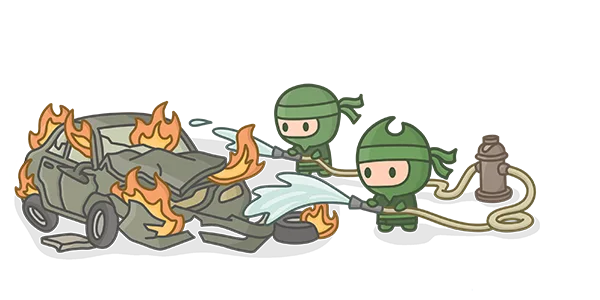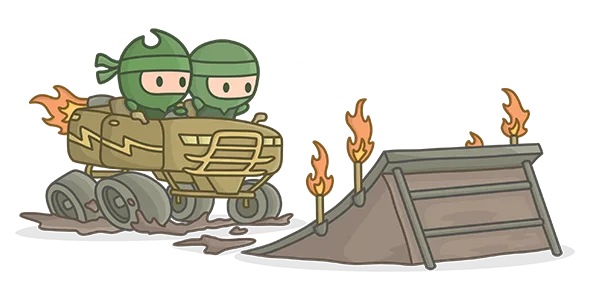
Exploring for Experiences
Supportive Traits
Supportive traits are like great personal assistants that help us navigate through life’s challenges more smoothly. From handling day-to-day responsibilities to tackling complex issues, we often and consciously rely on these trusted aides—our supportive traits—knowing that they are capable and reliable at what they do. Ultimately, living in the absence of our supportive traits is akin to losing both our arms; we would struggle tremendously to function without them.
Your habits shape your identity,
and your identity shapes your habits.
James Clear
As our supportive traits come naturally to us, we tend to employ them effortlessly, as if we are writing and drawing with our dominant hand. Therefore, we often take our supportive traits for granted, not realizing how valuable they are to someone of a different archetype. If left unchecked, we might even run the risk of overusing them, preventing other parts of ourselves from flourishing.
Like our dominant traits, our supportive traits are simply facets of our personalities. Whether they are strengths or weaknesses is entirely dependent on the way we utilize them. If we cultivate and develop our supportive traits well, they can become valuable additions to our toolbox of super strengths. However, if we use them in an unhealthy manner, the same traits will ultimately lead to our undoing.
While challenges can be daunting, they become manageable when tackled as a team. Pioneers recognize this, which is why they are always working with others to accomplish what was once impossible. By leveraging the strengths of each team member, Pioneers can take on larger endeavors, making substantial progress for themselves and their team. Ultimately, teamwork helps Pioneers seize greater opportunities and accomplish far more than they ever could alone.

However, the appeal of exciting collaborations is never-ending for Pioneers. Taking up one project after another, they tend to put more onto their already full plate, making it impossible for them to manage. As a result, they can never focus on a single project, leaving many tasks undone. Constantly distracted by new opportunities, it would be no surprise that many find Pioneers unreliable to work with.
Relying too much on others for motivation, Pioneers might struggle to accomplish tasks on their own. Their go-getting spirit will eventually die out if no one holds them accountable. When left alone, they may start to get lazy, unable to get anything done. Without a push from others, Pioneers may turn into slackers, unmotivated to accomplish anything substantial on their own accord.
In critical situations, one must be able to weave through the challenges that come their way. Fortunately for Pioneers, their agile minds allow them to swiftly navigate their surroundings. Whether it be crisis management or conflict resolution, they are always ready to adapt to the fluid circumstances and turn them to their advantage. Pioneers know how to seize opportunities amidst chaos, making them valuable assets in high-pressure environments.

Thriving in chaos, Pioneers might forget to establish order in their lives. They may think that even without prior planning, they can navigate their way through the worst of situations unscathed. But this is far from the truth. Their failure in planning only limits their choices, forcing them to make bad decisions with grim consequences. Pioneers do not realize that once they fail to plan, they plan to fail.
At their worst, Pioneers view their versatility as a license to be reckless without repercussions. Even in dire circumstances, they might still take a gamble with risky and untested methods to solve their problems, not realizing that this might aggravate the situation even further. The consequences of each mistake might soon catch up to Pioneers, causing them to lose everything when they least expect it.
Whenever an opportunity arises, Pioneers are sure to seize them right away. They never let any of their prospects go to waste, making the most out of every moment. As bold risk-takers who strive to live life to the fullest, they are always finding openings for progress in everything they do. Even when suppressed by adversity, Pioneers only see problems as opportunities that help them rise back up stronger.

By seizing opportunities, Pioneers open up plenty of pathways to succeed. Yet, they do not stick to any one path, as they fear that by doing so, they are closing off all the others. Unable to commit, they tend to jump from one thing to another without considering the long-term effects. Eventually, any progress made by Pioneers might be extinguished due to their insatiable thirst for more.
When Pioneers get too ambitious, they may become blind to the risks that come with their aspirations. They might lose sight of the bigger picture, gambling their future away on some wild opportunity. In situations as such, ambition becomes the death of thought. If Pioneers remain reckless, they may eventually find themselves with nothing left, not knowing what had hit them.
Thus far, we have explored both the Pioneer's dominant and supportive traits. In our jargon, these traits are known as one's heroic traits. Think about it, don't we all look like heroes when we put these traits to use? Not just wannabe heroes, but real ones—those who are truly powerful yet unimpressed with their own abilities.

Superhuman strength and the ability to fly are awesome superpowers that we all wished we had. But Superman doesn't pride himself in any of those abilities. To him, using those powers to save the world is just another day on the job. Similarly, even though we are great at our dominant and supportive traits, we do not find them the least bit amazing. From our perspective, there is nothing special about these mundane things that we do every day.
That said, as heroic as our traits may seem, no hero in the world is perfect. Even the most powerful heroes, such as Naruto, Thor, or Wonder Woman, have their own flaws and weaknesses. However, that does not invalidate them as heroes; it only makes them all the more admirable. The same goes for our own heroic traits. They may not be perfect, but our strive to improve them is what sets us apart.
I am not a hero. I just did what any
decent person would have done.
Miep Gies
When our heroic traits bask in the light, they will inevitably cast shadows—traits that we tend to neglect. Our shadows are foreign to us, as they are the complete opposite of our natural traits. Because we fear what we don't understand, most of us will subconsciously push away or suppress these parts of ourselves. Unfortunately, if we allow the fear of failure to overpower our minds, these suppressed shadows will eventually swallow us whole.
Nevertheless, shadows are not our weaknesses. They are simply parts of ourselves that we are unfamiliar with, and therefore, would rather avoid. But if we harness our shadows, they will eventually become our hidden strengths. It may be daunting at first to explore these dark and unknown parts of ourselves. However, with a curious mind and a compassionate heart, there's nothing to be afraid of. With that said, let us venture deep into the shadows within us.
Read next section →
Shadows Within [Pioneer]